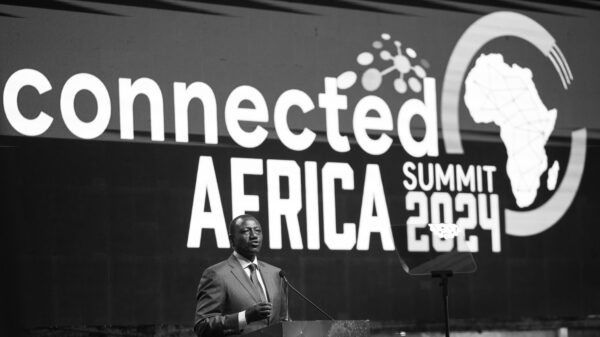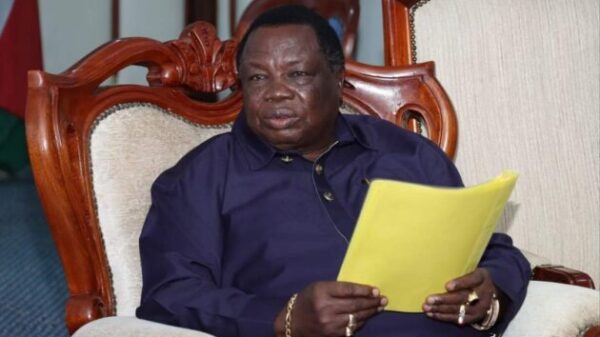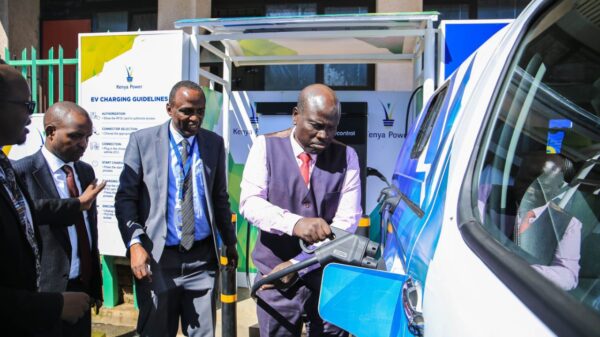
“The micro economic foundation of Kenya is strong and sustainable, inflation has remained under control and our foreign exchange reserves have improved significantly,” he said/PSCU
In his State of The Nation address in Parliament on Thursday, he said Kenyan economy was resilient at a time of global economic and financial turmoil.
“The micro economic foundation of Kenya is strong and sustainable, inflation has remained under control and our foreign exchange reserves have improved significantly,” he said.
Inflation stands at 6.8 percent as at February 2016 while Central Bank of Kenya’s foreign exchange reserves currently stand at US$7.3 billion (equivalent to 4.7 months of import cover).
ACHIEVEMENTS
Among the achievement the President highlighted under the Jubilee Administration include the overhaul of the Companies Act, in a bid to cut to a minimum the old stringent rules that once made it difficult for sole business owners to register as limited companies.
“Evidence of our success is that the World Bank’s Doing Business Indicators show Kenya to be the third-most improved country in the world. We jumped an almost unprecedented 28 positions in the rankings.”
“Nairobi was named the most attractive destination for Foreign Direct Investment in Africa and Kenya, alone in Africa, was singled out as one of the seven most promising emerging markets. And this achievement is also part of the Nationalist Promise,” he said.
The president highlighted the construction of the Standard Gauge Railway (SGR) which will enhance trade by improving the ease of transportation of goods and services throughout the country and in the East African Community.
The ongoing SGR project has seen over 27, 000 jobs created and Sh50 billion worth of local supplies to the project. The project is set to inject 1.5 percent of GDP to the economy upon completion.
“We will complete and operationalise the new railway between Mombasa and Nairobi by June 2017. Plans are also underway to modernize the existing meter gauge railway across the country along this rail will be new industries and business ventures, further enabling us to create Jobs,” he explained.
Between 1963 and 2013, Kenya built 11, 000 kilometers (Km) of tarmac road which translates to 220 km per year, in the last three years the Jubilee government has built 3, 000KM of road an average rate of 1000Km per year.
In 2013 Mombasa Port was the 8th busiest port in Africa, with a handling capacity of 890, 000 twenty foot containers.
In February 2016 the Jubilee government completed the expansion of two additional shipping berths in Kilindini doubling the handling capacity to 1.6million twenty foot containers per year moving Mombasa Port to the 4th busiest port in Africa in three years.
“We opened the newly completed Passenger Air Terminal 2 and we will be commissioning two new terminals by May 2016, increasing passenger handling capacity at the Jomo Kenyatta International Airport (JKIA) by 5.1 million new passengers building total capacity to 7.5 million passengers per year.
There are also new airport facilities at various stages of completion in Homabay, Isiolo, Manda, and Malindi Lokichoggio amongst many others.
On energy, the Jubilee Government has brought online 634Megawatts (MW) of new power in the last year, raising Kenya’s total power capacity to 2282MW and have built more than 10, 000km of high capacity transmission and distribution lines connecting more Kenyans to the national grid.
This includes Garissa which will receive the first ever electric power supply from the national grid since independence next month.
In the last 12 months the Jubilee Government has also connected an additional 1.2 million Kenyans to electricity while the initiative for installation of 26,000 new street lights across five counties will be complete in mid of 2016.
Fifty towns across the country have also been added to the street lighting initiative programme.
“Why we are doing this? It is to improve security and make the 24 hour economy a reality,” he explained.
LIMITATIONS
However, Genghis Capital Macroeconomics Analyst Kevin Tuitoek says the economy has grown modest since Uhuru Kenyatta took power rating his government with five points out of ten points.
“Kenya’s growth rate has been relatively stagnant on the back of an expected double digit growth based on the Jubilee government manifesto,” Tuitoek told Capital FM Business.
Among the limitations include lack fiscal management that has resulted in lack of priority spending which affects growth rates in the short term.
“Poor budget implementation, with low uptake on budget across all sectors resulting to development expenditure falling short of the 50 percent mark with only three months left in the budget cycle, noting that’s a key area that boosts economic growth. The government needs to be Keen on that as we go to the next financial year,” Tuitoek said.
He urged the government to also tackle the rise of corruption and Kenya Revenue Authority (KRA) missing its targets.
“I think we have been setting quite ambitious targets for KRA over the short term,” he noted.
On debt, Tuitoek says Kenya is slightly above the 50 percent GDP to debt ratio, creeping up towards unsustainable levels.
“However, the main debt focus is the Eurobond with the coupon rate approaching the 9 percent from 6 percent which is a bit worrying,” he stated.



































